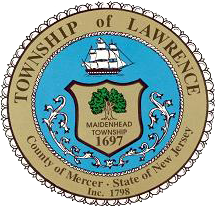General Information
Hours
Office Hours M - F
8:30 a.m. - 4:30 p.m.
Legionella Resources
Legionella
RECOMMENDED ACTIONS FOR RESIDENTS According to New Jersey Department of Health, residents can follow recommended best practices to reduce Legionella growth in their household water. For more information on best practices, please visit NJDOH’s Legionella webpage at: https://www.nj.gov/health/cd/topics/legion.shtml
- Let your faucets and showers run for at least 3 minutes when they have been out of use for more than a week. Care should be taken to minimize exposure to splashing and aerosol generation, for example, leaving the room while the water is running.
- Thoroughly clean or replace your shower heads and faucet aerators (screens) 3–4 times per year. To disinfect, use a 1:100 diluted solution of regular household bleach (1/4 cup bleach to 1 gallon of water). For concentrated bleach use 3 tablespoons for 1 gallon. Follow instructions found on the back of the bottle for safe use including only using disinfection products in a ventilated area.
- Drain and flush your hot water tank every 6–12 months. Consider hiring a licensed plumbing professional to perform this.
- Clean and/or replace all water filters per manufacturer instructions, such as whole house (e.g., water softeners) and point-of-use filters (e.g., built-in refrigerator filters).
- Remove, shorten, and/or regularly flush existing dead legs (a section of pipe capped off with little to no water flow). For future renovations, ensure your plumber avoids creating dead legs.
- Keep your hot water tank set to a minimum of 120°F. This temperature will reduce Legionella growth while minimizing risk of hot water burns. Higher temperatures can further reduce the risk of Legionella growth, but you should first install a mixing valve to prevent hot water burns when using the water. Check with manufacturer recommendations prior to raising the temperature.
- Medical devices and portable humidifiers should be operated, cleaned, and disinfected per manufacturer instructions. Do not use tap water if sterile water is recommended.
- Drain garden hoses and shut off the water line when not in use for the season.
- Maintain chemical levels in your hot tub per manufacturer recommendations.
- Avoid high-risk activities. If you are at an increased risk for Legionnaires’ disease, consider avoiding power washing, or similar activities, which may generate increased amounts of aerosols or mist
See this press release regarding TWW/Hamilton Township with recommendations for residents and building owners. Please note that these recommendations are considered best practices that all residents in NJ should follow.
This pamphlet details information for homeowners regarding maintenance of household water systems
Legionnaires’ Disease Fact Sheet CDC’s “Preventing Waterborne Germs at Home”
Legionella Testing Resources
- EMSL Analytical Lab
- (800) 220-3675
- https://www.emsl.com/Services.aspx?action=list&ServiceCategoryID=31
- Pricing & Information:
- Gillian Egiazarov
- Email: Gegiazarov@EMSL.com
- Phone: 1-800-220-3675 ext. 2574
- Technical Questions:
- Christopher Goulah, Ph.D.
- Email: CGoulah@EMSL.com
- Phone: (716) 651-0030 ext. 1407
- Certified Water Services
- (215) 968-8860
- https://www.certifiedwaterservices.com/
- Omega Environmental Services
- (201) 489-8700
- https://omega-env.com/
- Contact: Larry Zaccherio
Please note: This is simply a resource list for residents. If you find any information on this list inaccurate, please feel free to let the Lawrence Township Health Department know at (609) 844-7089 or email at health@lawrencetwp.com
